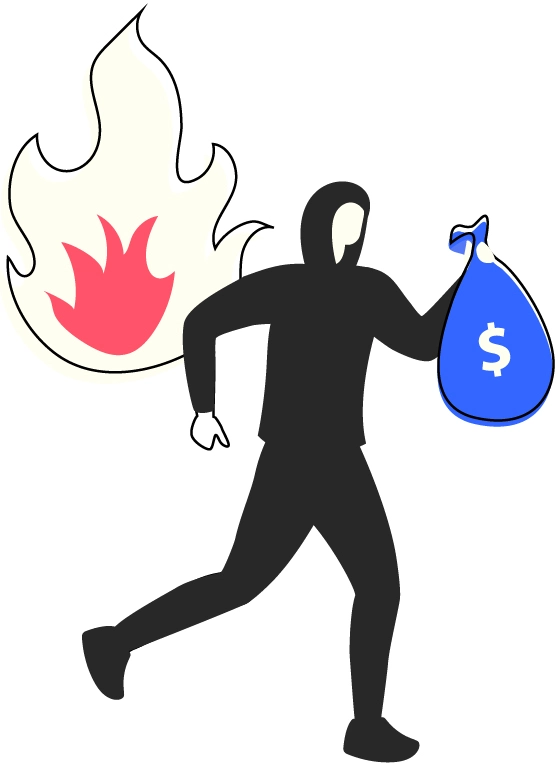72% of Canadian consumers have concerns about their financial health. If money’s on your mind, you’re not alone. However, you can build a sound financial foundation with appropriate Canadian insurance coverage. Keep reading to learn more about the best insurance in Canada.
Protecting Yourself with Canadian Insurance
Staying Prepared for Financial Emergencies
Insurance: Getting It in Perspective
How Insurance Works
Types of Insurance Coverage
Car Insurance
Auto or car insurance protects you against financial losses involving your car. For instance, you might get into an accident with your vehicle. Alternatively, you could become a victim of auto theft or vandalism.
In any instance, it’s illegal to drive in Canada without insurance. You could face considerable penalties if you’re caught driving without it.
Your auto insurance will cover physical damage or bodily injury for all vehicles. It may also cover all or some damages during an accident.
Depending on your policy, you may even have coverage if you’re found liable for reckless driving. Some policies, however, solely cover accidental car wrecks.
Health Insurance
In Canada, we’re fortunate to have public health insurance benefits. However, you’re not covered for every aspect of the healthcare system with various provincial insurance plans. For instance, in many cases, these plans don’t cover dental and vision treatment.
However, private health insurance ensures you don’t have to pay significant out-of-pocket expenses to cover vital health services. Often, you can receive this kind of coverage from your employer’s health insurance.
You may not have employer coverage. Alternatively, you may own a business. In that case, it’s a good idea to look into private health insurance to provide for your family’s health and safety.Homeowner’s Insurance
Homeowners face many risks. Suppose damage were to occur to your home. Insurance can help you pay for some of those damages in this instance.
Still, every homeowner’s policy comes with a set limit. This limit is a hard cap on the coverage you can expect to receive if something happens to your home. Usually, a homeowner’s insurance policy covers four kinds of incidents:Exterior damage
Interior damage
Loss or damage of personal belongings
Personal injuries

Looking for Homeowner or Tenant Insurance?
We’ve teamed up with Square One Insurance Services to give our readers a great option. Square One has an A+ rating with the Better Business Bureau and a 4.7-star rating with over 32,000 reviews.
Square One’s home insurance policies can start at just $12/month, with options for renters (tenants), condo owners, and homeowners.
Life Insurance in Canada
Life insurance is a mutual contract between you and the insurance company. The insurance company will pay a death benefit to your beneficiaries in exchange for paying premiums.
In most instances, people choose their dependents as beneficiaries. Then, on payment, they can typically spend those funds in any way they desire.
For example, your family might use the payout for daily expenses like house maintenance, education, or mortgage payments. Alternatively, they may use the funds in any way they see fit.
There are two basic kinds of life insurance. With permanent life insurance in Canada, you’d receive lifetime coverage. Life insurance, however, provides coverage for a specified period.
Pet Insurance
Pet insurance can offset some of the vet fees, especially emergency treatment. In addition, a wellness insurance plan will cover general health and maintenance. For example, it may provide veterinary shots.
Meanwhile, you can customize a health insurance plan according to your needs. This kind of plan is much more comprehensive. For example, it may cover diseases and even major surgeries for your pet.
Renter’s Insurance
People often use the terms renter’s insurance and tenant insurance interchangeably. In either case, this insurance enables you to cover your personal belongings in a rental property in the event of a fire or theft.
Depending on the policy, the renter’s insurance might also cover the replacement of belongings and the cost of relocating while waiting for repairs. Renter’s insurance also protects you from liability if someone injures themselves in the property and decides to sue you if you’re the tenant.
In most provinces, renter’s insurance is mandatory. Still, many landlords require tenants to buy renter’s insurance before letting them a unit.
Small Business Insurance
Small business insurance is a type of commercial insurance. It protects a business owner’s assets and income.
Many small businesses with 1 to 100 employees will purchase a Business Owner’s Policy (BOP). This insurance usually covers business property or interruption and provides general liability coverage.
BOP insurance also protects businesses from events like fire and theft. If any of these unfortunate events should occur, BOP insurance will cover some or all the damage to property owned by the business.

It can also cover the cost of replacing lost or damaged fixtures. Likewise, BOP insurance can cover the costs of replacing important equipment, such as computers, furniture, or machinery.
More Small Business Insurance Benefits
BOP insurance can provide general liability coverage for medical expenses or legal costs. For example, suppose someone becomes injured on a business property.
The individual sued the business, and the company gets found liable for the damage. General liability coverage will protect the owner from losses in this instance.
Also, BOP insurance might provide business interruption coverage. For example, suppose a business must shut down due to an unforeseen event. The policy will cover any lost income or additional expenses during this time.
Usually, a BOP insurance policy will list these kinds of events under “covered perils.” However, if an event outside the scope of covered perils interrupts the business, the policy won’t provide coverage.
Travel Insurance in Canada
When travelling, people face certain risks. For instance, something minor can happen, like losing your suitcase. On the other hand, something significant could happen, like a travel cancellation or another emergency.
Canadian travel insurance policies also have a set of named perils. These perils stipulate the type of events covered in the insurance policy. For example, the travel policy won’t provide coverage if something falls outside the range of the hazards.
The Best Life Insurance in Canada
When it comes to insurance, Canadian consumers have unique needs. There’s no shortage of insurance companies offering to meet those needs. Even if you’re challenging to ensure because of your health, lifestyle, or extreme hobbies, there’s a policy for you.
No one insurance provider’s perfect for everyone. However, there are a couple of insurers that are worth mentioning. Let’s have a look at them.
Canada Life Travel Insurance
Canada Life has been in business for 175 years. The company has an AM Best rating of A+. It has millions of customers and is one of the largest insurers in the nation.
The coverage and rates for Canada Life policies can vary greatly. However, the company has solid financial standing, meaning it can pay claims if something should arise. Also, Canada Life has a generous term exchange option.
Premier Canada Insurance
Premier Canada is a member of the Premier Group of Canadian insurance companies. The insurer offers a wide range of personal insurance and commercial specialty products.
Premier Canada has only been around since 1990. Since then, however, the insurer has built an impressive range of commercial and personal insurance lines. These products are difficult to find with other carriers.
With Premier Canada, for instance, you can purchase commercial marine insurance. However, the company also has personal recreation coverage. In addition, the insurer also offers reliable coverage for recreational vehicles and vacation properties.
Insurance Documents: What You Should Know
The best insurance in Canada provides a considerable benefit for consumers. In 2019, for instance, insurers paid out $98 billion in claims on homes, cars, and businesses. However, insurers paid these claims under clearly outlined conditions.
No matter what insurer you choose, insurance agreements can prove highly complex. It’s crucial to read insurance documents carefully and understand them. You should make sure you’re not in for an unpleasant surprise if you should one day need your coverage.
There are four sections in just about every insurance policy. These sections include:
Agreements
Conditions
Declaration
Exclusions
Let’s have a closer look at these insurance document items.
Agreements
The agreement section highlights the property or asset that the policy covers. It also details what losses the policy covers. Furthermore, this section states the insurance company’s criteria for paying a claim.
Conditions
An insurance agreement’s condition section states mandatory conditions you must comply with under all circumstances. If you don’t fulfill those conditions, your policy can become void.
In other words, you’ll give the insurer the right to deny your claim. You must ensure you meet all terms of your insurance agreement listed in this documentation section.Declaration
The declaration portion of an insurance agreement has several sections. These sections include the following:
Add-on endorsements
Policy limits
Premiums due
Scope of coverage
The declaration portion of an insurance agreement has several sections. These sections include the following:
Exclusions
As its name implies, the exclusion section covers events or property excluded from coverage. For example, this section might include exclusions for acts of God if you are purchasing a homeowner’s policy.
Helpful Tips for Buying the Best Insurance in Canada
Although challenging, assessing characteristics is essential when comparing insurance products. For instance, a whole life insurance policy has a considerably different structure than a term life insurance policy. Still, depending on your needs, you may want to choose one versus the other.
A term life insurance policy provides coverage for a fixed period. This timeframe usually lasts between 10 to 30 years.
You might want a term life insurance policy to protect your dependents if an adverse event occurs. This way, if you were to pass, your dependents would receive a payout to help them maintain their security and quality of life.
There’s More to Know About Managing Finances
Now, you better understand the wide range of available Canadian insurance. Still, there’s more for you to learn.
Please feel free to browse and subscribe to our blog to learn more about managing life’s important matters.
Credit Tips!
When buying life insurance, make sure you are comparing apples to apples. A whole life insurance policy will have a substantially different pricing structure than a term life insurance policy. However, depending on your circumstances and preferences, you may want to choose one over the other.
A term insurance policy offers coverage for a fixed period (typically between 10 – 30 years). Buyers of term insurance policies often get these policies to support their dependents in case of an adverse event. That way, if the insured person passes away, their dependents can use the proceeds to pay down the mortgage and afford college tuition, etc.